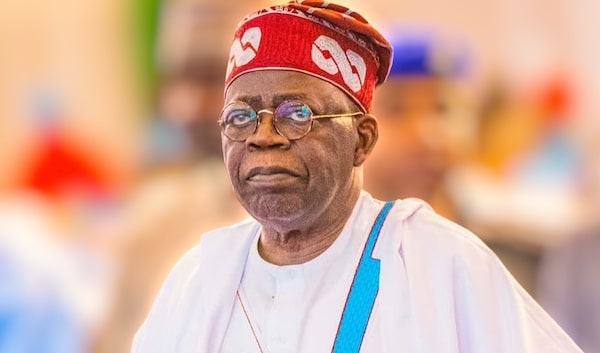
For many Nigerians, President Bola Tinubu’s eight-point agenda, pointing towards economic re-engineering and radical overhaul of directive principles of the state’s policies, appears heart-warming. The agenda, broad-based and ambitious, especially in the area of fighting corruption, is raising hopes and warming feet that had become cold in the wake of the removal of subsidy on petroleum products.
While presenting the agenda to Nigerians recently, the Minister of Finance and Coordinating Minister for the Economy, Wale Edun, explained that, “The overriding conclusion is that we ‘re not where we should be and we also examined the President’s eight-point agenda, that is the eight priority areas for moving the Nigerian economy forward and for delivering to Nigerians and those are basically food security, ending poverty, economic growth and job creation, access to capital, particularly consumer credit, inclusivity in all its dimensions, particularly as regards youths and women, improving security, improving the playing field on which people and particularly companies operate, rule of law and of course, fighting corruption.”
That the President prioritised fighting corruption in his government, is a trajectory of development and a blueprint of hope for the nation and continued relevance of the Economic and Financial Crimes Commission as Nigerian most vibrant anti-graft agency.
By raising strong boulders against economic and financial crimes, Tinubu is joining the rest of the world in bolstering economic growth because no enduring gain can be made if leakages caused by corrupt practices are not plugged in the larger economy. Corruption is more than a threat to economic growth: it is actually a fatal blockage of all driving forces of development.
At the EFCC, bright lights of fresh thinking in the area of strategic alliances and partnerships are springing forth. At different fora, the EFCC Acting Chairman, Abdulkarim Chukkol, has stressed that the task of fighting economic and financial crimes requires robust intelligence gathering. Intelligence does not fall from the sky. It is about bridge-building, synergies and reliable linkages with critical stakeholders across the world. Intelligence-driven operations are like radiographic support to surgeries. No surgeon in the world can magically work on his patient without adequate radiographic intelligence. With a driver like Chukkol, I see greater strides ahead in the crucial works of breaking the hard nuts of corruption.
As good as intelligence is, timely and proactive frameworks in tackling graft are imperative. To achieve this, the EFCC needs to be ahead of both budding and hardened fraudsters in thinking and strategies. My interactions with some key officers of the EFCC have shown that beyond what we know or read about, Chukkol is building a system of stop- breaks out. How? Through rigorous enlightenment campaigns across the country.
Now, it is no longer news that the EFCC public awareness machinery is revving in schools, marketplaces, motor parks, religious houses and other public squares. No Nigerian has any excuse for committing economic crimes any longer because campaigns against them are getting hotter than before. This is as good for the EFCC as it is good for the President’s economic agenda. We can only have enough for our needs if we fight enough against our greed.
Job creation, poverty alleviation, food security and other compelling needs of our nation are quite phenomenal. Even access to capital, inclusive youth and women development, coupled with adequate security are unmistakably essential for the nation. However, I feel that none of these is as crucial as the fight against corruption.
President Tinubu needs to deepen and strengthen anti-corruption agencies, especially the EFCC, and encourage its leadership to offer their best in growing the economy.
Already, the President is moving in this direction with the reported recruitment drive in the EFCC that is said to be broad-based. Feelers from the commission showed that sufficient attention is being paid to national spread and balancing in recruitment. The South-West, South-East, South-South, North-Central and other geo-political zones are paying their dues.
At this juncture, it is imperative to stress the need for collaborative engagement of all the key drivers of the economy in achieving the President’s agenda. Primarily, the Central Bank of Nigeria is being looked upon for new frameworks, effective enough to checkmate fluctuations and disquiet in the foreign exchange market.
Equally, all revenue-generating agencies like the Federal Inland Revenue Service, Nigeria Customs Service and others, need to review their strategies to save the nation from the pains of economic distress. Where does the EFCC come in here? The commission’s role is in ensuring that initiatives for driving the economy are assessed with a fine-tooth comb, leaving no room for compromise and shadiness. This should not be an uphill task for Chukkol.
Other means of building strength is checking abuses and infractions in our financial institutions. Insider dealings in banks across the country are not healthy and we really need to commend the EFCC for its daily monitoring of all forms of transactions in both the regular financial institutions and Designated Non-Financial Institutions, Businesses and Professions.
The government should continue to strengthen the EFCC and insulate it from any form of instability, within and beyond its precincts.
The sum and substance of this piece is simply the incontrovertible necessity of building strength for the President’s agenda through effective and sustainable anti-corruption efforts. The whole world is talking about sustainable development goals towards peace, prosperity, and progress.
With the theme of the 2023 United Nations General Assembly, all meaningful efforts should be made towards lifting the EFCC and its leadership for more impressive results. There are pains at the moment but they are not terminal. As we keep pushing the frontiers of anti-corruption works, greater gains are on the horizon, both for the new government and the entire nation.
In conclusion, President Tinubu needs our genuine and best support as he continues to navigate the tumultuous terrain of growing the national economy. All agencies of government, including the EFCC, must also be supported. Our desired reliefs won’t come without sacrifices. We should move with the words of our legendary Wole Soyinka in The Interpreters: “Pains may be endured in the pursuit of ending pains and fighting terrors.”
Sani, a public affairs analyst, writes from Bauchi State





